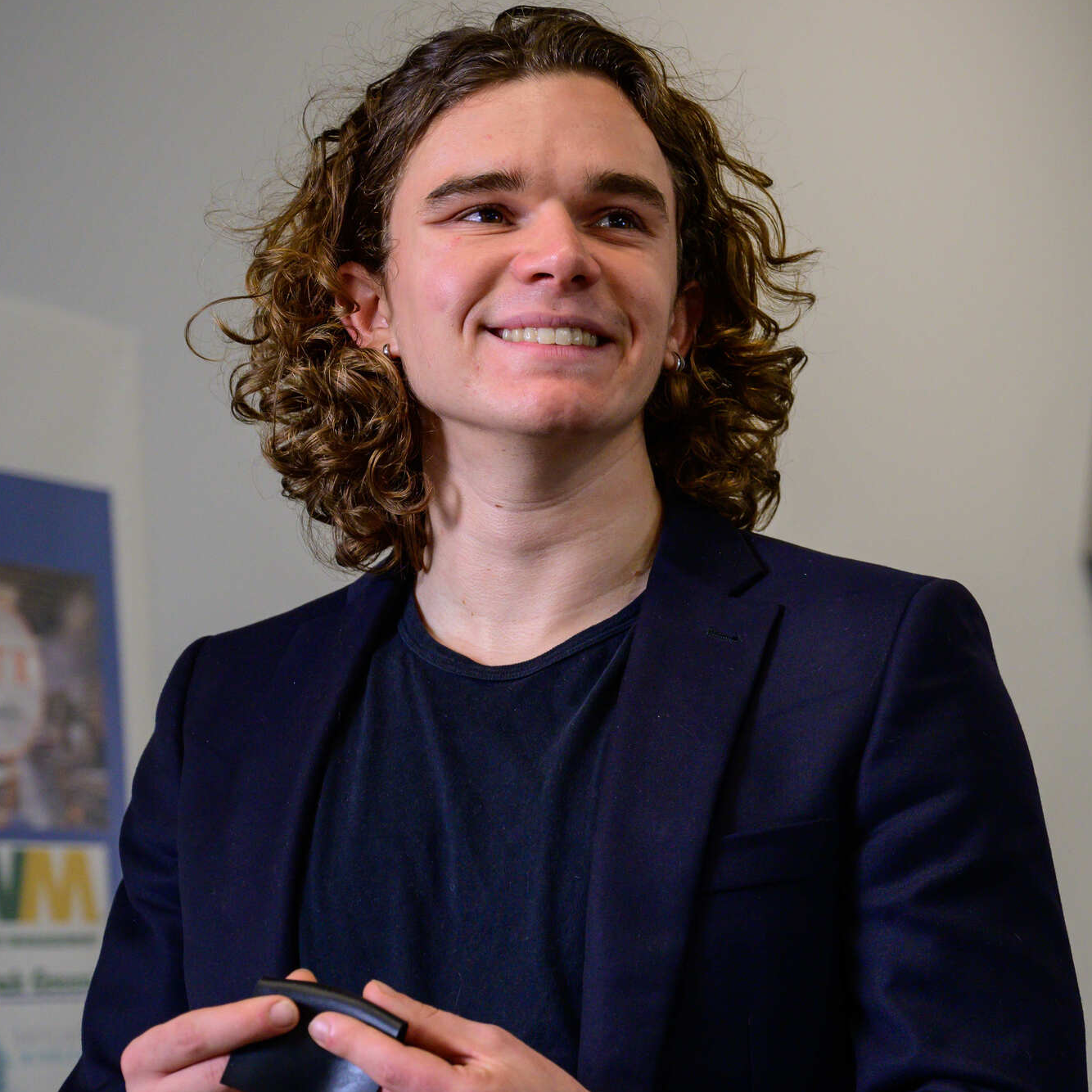Because his big idea is redefining the sustainable design industry to protect the planet.
Entrepeneur Zimri T. Hinshaw, CLA ’20, started BUCHA BIO in his apartment on Temple’s campus. With the help of fellow classmates and the resources available to Temple students, Hinshaw turned his experiment into a sustainable biomaterials company that is redefining what it means to design sustainably.

Zimri T. Hinshaw ’20
CEO and Founder, BUCHA BIO
“Our early teams were made of students from different departments collaborating across different industries and spaces. Temple is such a great, low-risk environment for entrepreneurs to learn how to build and lead teams.”
Changing the world starts here. Sign up to get more information about Temple.The First Batch
The story of BUCHA BIO, a Houston-based company that creates innovative, sustainable biomaterials that can be used to design anything from apparel to automotive interiors, began in a shallow pool filled with an uninviting microbial cocktail under a bed in an apartment just west of Temple’s Main Campus in 2019.
Hinshaw was using the space to brew kombucha, a fermented beverage made from tea, bacteria, yeast and sugar. Inspired by a YouTube video about kombucha-making, his interest in fashion and a fascination with the leather jackets worn by motorcycle gangs in Japan, Hinshaw had come up with the idea for a business.
Hinshaw believed that kombucha’s “scoby”—the thick, rubbery cellulose mat that forms on top of the liquid as it ferments—could be made into a leather-like biomaterial with a wide range of design applications without the environmental and ethical costs of cattle farming and tanning required to produce leather.
After many weeks of experimenting with scoby production, conducting market research and brainstorming with administrators at Temple’s Blackstone Launchpad, Hinshaw’s biomaterials concept won the Innovation and Entrepreneurship Institute’s 2019 Innovative Idea Competition. The win earned him $2,500 of seed money, which he soon leveraged into enough additional investment to launch the company that BUCHA BIO is today.
Call for Collaboration
Hinshaw’s Temple journey unfolded exactly as he had hoped it would when he made the decision to transfer from Temple University, Japan Campus, where he had begun his studies.
“I wanted to access the resources and opportunities for entrepreneurship that would be available to me at Main Campus,” Hinshaw said. “I knew I could jump-start something there.”
One of those resources: his fellow students. As his BUCHA BIO concept took shape, he brought in undergraduates from the Tyler School of Art and Architecture, the College of Liberal Arts, the College of Science and Technology, the College of Engineering, and the Fox School of Business as collaborators.
Spreading Sustainability
BUCHA BIO doesn’t make anything from kombucha anymore. Now, they produce proprietary biomaterials from other sources of bacterial nanocellulose, including a leather-like material called shorai that’s available in a broad spectrum of colors using algae and fruit-based dyes, and a partially translucent material called hikari with an aesthetic almost like stained glass.
And they’re not done creating innovative products to inspire a new wave of sustainable design. Coming soon, Hinshaw says: biomaterials that can be used for injection-molded components such as a vehicle’s dashboard or door panels, and biofibers to replace nylon and other plastics.
Access to Opportunities of All Kinds
A Temple education is career- and community-focused. From working with real-world clients in the classroom, to learning from industry experts and taking on internships and other opportunities across Philadelphia, all students have the chance to gain important experience when it comes to exploring the possibilities for their future.
